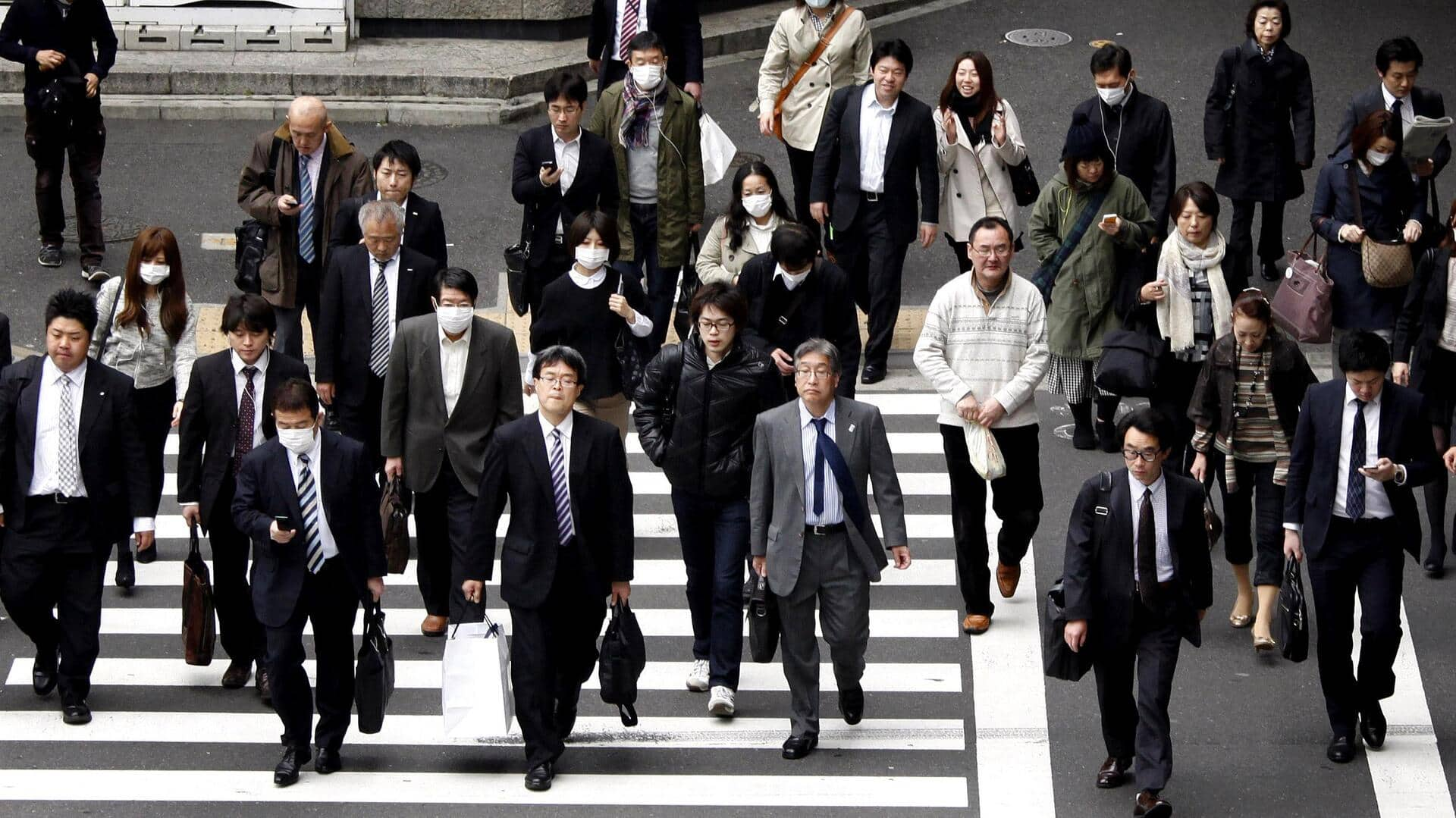
'Workaholic' Japan pushes 4-day workweek to counter labor shortages
What's the story
Japan is actively promoting a four-day workweek to address labor shortages and low birth rates.
The government first endorsed this idea in 2021, launching the "hatarakikata kaikaku" or "work style reform" campaign.
This initiative aims to encourage shorter working hours and flexible schedules, particularly for small and medium-sized businesses.
However, despite government support, the concept has been slow to gain traction among companies and employees.
Adoption rate
Government data reveals slow adoption of flexible schedules
Government data shows that only 8% of Japanese companies currently allow employees to take three or more days off per week.
In contrast, 7% adhere to the legally mandated one day off.
The department responsible for new support services for businesses reported that only three companies have sought advice on implementing changes so far.
Among Panasonic's 63,000 employees in Japan, a mere 150 have chosen four-day schedules despite its availability.
Workaholic mentality
Japan's work culture and its impact on society
Japan's endorsement of a better work-life balance signifies a major shift in a country known for its intensive work culture.
Societal pressure to conform often leads citizens to take vacations simultaneously, to avoid being perceived as neglectful by colleagues.
Despite legal limits on overtime and provisions for two days off per week reported by 85% of employers, some workers still engage in "service overtime," unreported and unpaid extra work hours.
Demographic crisis
Overwork-related deaths and declining birth rate
A recent government white paper reported at least 54 fatalities a year due to "karoshi," meaning "death from overwork," which includes cases of heart attacks.
With Japan's birth rate declining, some officials argue that changing the work-focused mindset is crucial to maintaining a viable workforce.
Government data predicts a 40% decline in the working-age population, from 74 million currently to 45 million by 2065, attributed partly to the job-centric culture.
Corporate shift
Corporate Japan's response to the four-day workweek
Several large companies in Japan, including Fast Retailing Co., Shionogi & Co., Ricoh Co., and Hitachi, have also adopted the four-day workweek in recent years.
The finance industry has shown interest too, with SMBC Nikko Securities Inc. allowing four-day schedules since 2020 and Mizuho Financial Group offering a three-day schedule option.
However, critics argue that workers on four-day schedules often end up working just as hard for less pay.